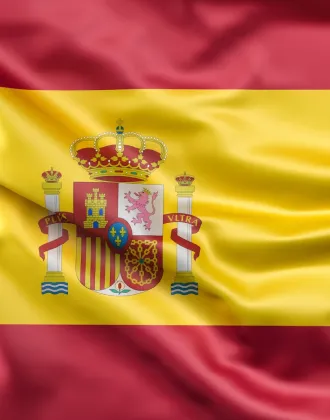
Crypto License in Singapore
Singapore is one of the most crypto-friendly jurisdictions in the world. The national regulator is constantly improving the rules and providing clarifications on licensing cryptocurrency exchanges. Gofaizen & Sherle specialists are ready to help in registering a cryptocurrency company and obtaining a cryptocurrency license in Singapore.
Singapore is a parliamentary republic and a major financial center in Southeast Asia. It is known for its developed market economy and business-friendly climate, which attracts businesses from various regulated industries. Especially in the fields of finance, cryptocurrency, and payments, companies tend to operate in Singapore.
Singapore is a prestigious international financial services center, widely respected and recognized. This country is known for its low tax regime for both local and offshore companies, as well as its sensible approach to regulating fees.
Currently, Singapore is one of the few jurisdictions where cryptocurrency exchanges are directly regulated by law. From 2014-2018, the National Regulator (MAS) issued clarifications and expressed its position on cryptocurrencies, ICOs, and licensing of cryptocurrency exchanges in Singapore. However, in 2019, a new law, known as the Payment Service Act 2019, was passed that requires companies exchanging cryptocurrencies for other cryptocurrencies or fiat funds to obtain a Small Payment Institution or Major Payment Institution license.
Cryptocurrency exchanges act as intermediaries in the exchange of virtual currencies and fiat funds. It is important to note that if a cryptocurrency exchange begins to provide services for buying and selling tokens, which fall under the regulation of securities, it is necessary to obtain a license for a full-fledged stock exchange.

Find more information about the crypto license in Singapore
Advantages of obtaining a cryptocurrency license in Singapore
Getting a cryptocurrency license in Singapore offers several advantages:
- Reputation and credibility. Singapore is a major financial center with global recognition and respect. Getting a license in this jurisdiction enhances the reputation of your cryptocurrency company and inspires trust with customers and partners.
- Regulation and Transparency. Singapore regulates cryptocurrency companies to ensure that transactions are legal and transparent. The national regulator provides clear rules and guidelines to help comply with relevant regulatory requirements.
- Favorable business climate and innovative environment. A stable economy, efficient infrastructure, support, and development of technology and innovation, including blockchain and cryptocurrencies, make Singapore an attractive place to do cryptocurrency business.
- Low-income tax, no VAT on cryptocurrencies, and zero (0%) tax on offshore profits.
- Access to international markets. Because of its status as an international financial center, Singapore provides access to global markets. On the other hand, Singapore actively cooperates with other countries and regulators in the field of cryptocurrency and fintech. This opens up additional opportunities to expand your activities and establish partnerships.
- However, it should be noted that obtaining a cryptocurrency license in Singapore involves meeting certain requirements and standards, as well as going through the registration and compliance assessment process.
Requirements for Obtaining a Crypto License in Singapore
To obtain a cryptocurrency license in Singapore, a company must meet the following requirements:
- Be registered in Singapore as a legal entity;
- Confirm the existence of an office in Singapore;
- Have at least one Singapore-resident director;
- Implement a risk management system specialized for cryptocurrency activities;
- Develop and strictly enforce fair and transparent rules for a token listing on the exchange;
- To create an information base on transactions made;
- Timely notify the regulator of all changes related to the operation of the exchange;
- Comply with anti-money laundering laws, privacy rules, and other relevant regulations.
The regulator also has specific requirements for crypto company personnel. Mandatory positions are:
- chairman;
- CEO;
- members of the board of directors.
The board of directors shall include:
- an audit committee;
- a nominating committee;
- a conflict resolution committee, and other similar committees.
The company’s executives must meet high ethical standards, have an impeccable reputation, and have appropriate education and experience in the financial field.

Request more information about the Singapore Crypto license
Types of Crypto Licenses in Singapore
Under the Payment Services Act (PSA) 2019, which sets out the rules for financial transactions involving digital payment tokens (DPT), licensed companies can provide the following services:
- exchanging cryptocurrencies – buying, selling and exchanging digital assets (DPT);
- organization of crypto trading platforms – the creation of platforms for trading cryptocurrencies;
- transfer of digital payment tokens – transactions with DPT between users;
- storage of cryptocurrencies – custodial wallet services for safe storage of assets;
- financial transactions with crypto-assets – provision of infrastructure for payments, including
- acceptance of cryptocurrencies as a means of settlement;
Companies operating in this field must obtain one of two main licenses to conduct their business:
Standard Payment Institution (SPI).
Main features:
- allows the provision of services with digital payment tokens (DPT), including buying, selling, exchanging and storing cryptocurrencies;
- companies with this license cannot exceed SGD 3 million (about USD 2.25 million) monthly transaction volume for one type of service;
- the total volume of all transactions for two or more types of payment services must not exceed SGD 6 million (about USD 4.49 million) per month;
- the company’s balance sheet may not contain more than 5 million SGD of electronic money at any given time;
- minimum authorized capital requirements (usually 100,000 SGD, or 74,900 USD).
Suitable for: small cryptocurrency companies whose transaction volume does not exceed the established limits. If a company exceeds these limits, it must obtain a Major Payment Institution (MPI) license.
Major Payment Institution (MPI).
Key features:
- allows unlimited volumes of cryptocurrency transactions;
- mandatory requirement to have a security deposit with MAS (SGD 100,000 (USD 74,900) for normal transactions, SGD 200,000 (USD 150,000) if the company provides e-money or cross-border payment services);
- stricter requirements for risk management, cybersecurity, and internal controls;
the company must have an increased authorized capital exceeding SGD 250,000 (approximately USD 187,000); - subject to stricter regulation by MAS, including regular reporting of financial activities.
Suitable for whom: cryptocurrency companies dealing with large transaction volumes.
In addition to SPI and MPI, cryptocurrency companies can obtain a Money Transfer License, which allows domestic and international money transfers, including cryptocurrency transactions.
This license is required for:
- providing money transfer services within and outside Singapore;
- exchange of fiat currencies (fiat-to-fiat);
- exchanging cryptocurrencies and fiat money (crypto-to-fiat, crypto-to-crypto).
According to the PSA, the Money Transfer License falls under Activity G (money exchange services), and is regulated separately. Its requirements depend on the volume of transactions and may include additional reporting and capital conditions.
License Comparison
| SPI | MPI | Money Transfer License | |
| Transaction limits | Up to SGD 3 million per service, up to SGD 6 million in total | No restrictions | No restrictions |
| Electronic money limit | Up to SGD 5 mln | No restrictions | No restrictions |
| Authorized capital | 100 000 SGD | SGD 250,000 and above | Individually |
| Security deposit | Not required | 100 000 – 200 000 SGD | Individually |
| Authorized transactions | Crypto services, payments | Large payments, e-money issuance | Exchange and transfers of currencies, including cryptocurrencies. |
Thus, the choice of license depends on the size of the company and the services provided.
The process and timeline for obtaining a crypto license in Singapore
Singapore offers a transparent but strict cryptocurrency licensing process regulated by the Monetary Authority (MAS). There are several mandatory steps to successfully obtain a license.
Establishment of a legal entity.
Step 1
The company must be registered in Singapore as a private limited company (Pte. Ltd.). Mandatory conditions are:
Preparation for application.
Step 2
The company develops and implements internal procedures for risk management, cybersecurity and anti-money laundering (AML) and countering the financing of terrorism (CFT).
Documents to be prepared:
- a detailed business plan and business model description;
- AML/CFT policies and procedures;
- a risk assessment document (including protection of client data and funds);
- financial projections and reporting;
- cybersecurity policies and measures;
- appointment of an AML compliance officer.
A security deposit is also required:
- SGD 100,000 – for a standard payment institution;
- SGD 200,000 – for a large payment institution.
Application submission and regulatory review.
Step 3
The company applies to MAS, which conducts due diligence.
Documents that MAS analyzes:
- company’s constituent documents;
- financial statements and capital information;
- information on the composition of the founders and their financial status;
- registration documents for the chosen type of activity;
- confirmation of compliance with AML/CFT standards;
- risk management policies.
Also possible:
- interviews with company representatives;
- additional requests for information from the regulator.
Making a decision and obtaining a license.
Step 4
MAS makes the final decision on issuance of the license. If approved, the company is authorized to carry out cryptocurrency activities within the established standards.
Overview of Crypto Regulation in Singapore
| Project time frames | 12 months |
| State fee for application | 1 000 USD |
| Required share capital | 100 000 USD |
| Corporate income tax | 17% |
| Annual supervision fee | – |
| Local staff member | AML Officer, Director |
| Physical office | Required |
| Accounting audit | Required |
| Sustainability | Sustainable |
| Bank account options | European EMIs |
Crypto regulation in Singapore
Singapore was one of the first jurisdictions to introduce state regulation of cryptocurrencies. In general, this city-state is considered a favorable environment for cryptocurrency exchanges and crypto startups. The Singapore Cryptocurrency and Blockchain Industry Association (CBIA) actively supports small and medium-sized businesses in the industry.
Cryptocurrency companies in Singapore are regulated by the Monetary Authority of Singapore (MAS). The main laws regulating the crypto sphere are the Securities and Futures Act (SAF) 2001 and the Payment Services Act 2019, which came into force in early 2020. The latter introduces the concept of “digital payment token” (DPT), and companies wishing to provide related services must be licensed as payment institutions (Small Payment Institutions or Major Payment Institutions).
In addition, as of April 4, 2024, the Amendments to the Payment Services Act came into effect. The updated rules apply to service providers engaged in the transfer and exchange of tokens, even if the services themselves do not own crypto-assets. Companies making international transactions with digital assets are also subject to the updated law, regardless of whether they accept funds in Singapore. The new rules require cryptocurrency companies to segregate client assets and their own funds, maintain strict accounting records and ensure asset security. It should also be noted that in November 2023, MAS restricted cryptocurrency companies from working with retail clients, and previously banned the launch of spot bitcoin ETFs for retail investors, despite such an investment product being approved in the US.
Cryptocurrency exchanges must also comply with:
- The Financial Advisers Act (passed in 2001, revised 2020 edition);
- Insurance Act (enacted 1966, revised edition 2021);
- The Trust Company Act (enacted in 2005, revised edition 2020).
- Personal Data Protection Act (PDPA), which regulates the collection, use and disclosure of personal data.
The MAS has a strong focus on decentralized finance and has taken a proactive stance on the regulation of the crypto industry in Singapore. In 2022, several recommendations and advisory documents have been published to reduce the risks of money laundering and terrorist financing using digital assets.
MAS also maintains a registry of virtual cryptocurrency companies, which includes all licensed cryptocurrency entities. The registry is an online resource that contains information on registered companies, including key employees, office address and contact details. The registry categorizes companies into two categories:
- standard payment institutions;
- mainstream payment institutions that can provide services related to digital payment tokens.
This provides transparency to the crypto industry in Singapore and increases trust in market operators.
Licensing fees
In Singapore, there are licensing fees that crypto companies must pay.
First of all, this is the application fee for a crypto license in Singapore. The cost to apply for a standard payment institution license to provide a digital payment token service is only S$1,000. However, if you want to apply for a large payment institution license for the same service, the fee is S$1,500.
To modify the standard payment institution license with the addition of DPT service, you need to pay S$1,000. At the same time, an application to add DPT service by modifying a major payment institution’s license costs S$1,500.
In addition to the application fees, there are also supervisory fees. Licensees are required to pay annual licensing fees that are commensurate with the type of license and services provided. A licensee who uses payment systems must pay the license fees applicable to the payment services they use. The cost of a standard payment institution license is approximately S$5. When a DPT service is added to a large payment institution’s license, this amount is doubled.

Taxation of crypto activities in Singapore
Currently, there is no special tax category for cryptocurrencies in Singapore. However, taxation depends on the specific situation and activities of the company.
If a company engages in cryptocurrency trading as its core business, profits from such transactions may be taxable as corporate income. The Income Tax Act (1947, 2020 Revision) imposes a low rate (only 17% on net income). Meanwhile, on January 1, 2020, the Internal Revenue Authority of Singapore (IRAS) ruled that the Goods and Services Tax (GST) (the local equivalent of value-added tax) will no longer apply to cryptocurrencies. But if a company offers services related to cryptocurrencies, such as exchanging, storing, or providing payments, these services may be subject to VAT.
Singapore crypto companies can benefit from tax exemptions if certain conditions are met. To be exempt, the company must be a tax resident of Singapore and have a share capital owned by no more than 20 shareholders at the end of the assessment year, with one of the shareholders owning at least 10 percent of the company.
Eligible companies can receive a 75% exemption from taxable income up to $100,000 for the first appraisal year. In addition, they may also receive a 50% exemption on the next $100,000 of income for the assessment years to which the exemption applies.
It’s important to note that specific exemption amounts and conditions are subject to change, so it’s advisable to consult official sources or tax advisors for up-to-date information. More up-to-date information on the taxation of digital tokens in Singapore can be seen in the electronic tax guide published by IRAS in 2022.
There is also no capital gains tax in Singapore, so companies that purchase digital tokens as a long-term investment have no tax liability for capital gains when they are later sold. If the cryptocurrency is used as an investment asset or a personal asset, however, taxation may be different depending on the situation. IRAS has clarified that various factors, including purpose, transaction frequency, and holding period, are considered when determining whether the gain from the sale of digital tokens is a taxable trade or capital gain that is not taxable.
It is important to note that the taxation of cryptocurrency activities in Singapore can vary and depends on the individual circumstances of each case. It is recommended to contact Gofaizen & Sherle’s professional tax advisors who specialize in cryptocurrency taxes in Singapore to get accurate information and advice appropriate for your situation.
FAQ on obtaining a crypto license in Singapore
How much does a crypto license in Singapore cost?
The cost of obtaining a crypto license in Singapore can vary depending on the type of license and services provided. The Monetary Association of Singapore (MAS) sets different fee structures for different types of licensing. The application fee for a license varies from S$1,000 to S$1,500.
Do you need a license to trade cryptocurrency in Singapore?
A license for cryptocurrency exchanges is required only for cryptocurrency exchanges, which will intermediate trading of tokens subject to securities laws. Under the Payment Services Act, service providers offering only digital payment tokens issued by a central bank or financial institution for a limited purpose are not required to obtain a license.
Is crypto regulated in Singapore?
Yes, cryptocurrency is regulated in Singapore. The Monetary Authority of Singapore (MAS) has developed a comprehensive regulatory environment to manage cryptocurrency-related activities and ensure the integrity and stability of the financial system.
Explore other Crypto Licences
Connect with our experts
Our experts will tell you how to do it as quickly and easily as possible.
By clicking the button, I confirm that I have read the privacy policy and consent to the collection and processing of my personal data in accordance with the GDPR rules.
to our news & insights

















